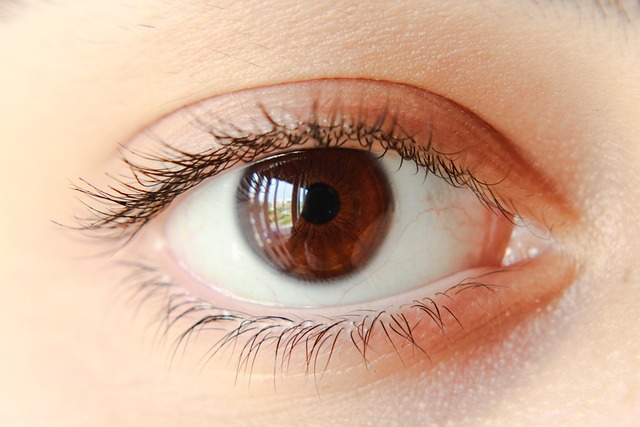Skin tags, caused by friction, are benign growths appearing on common areas. Their types include acral, angular, and pedunculated. Over-the-counter (OTC) products, containing acids or nitrate, offer home remedies for Skin Tag Removal Manchester. Selection should consider skin type and tag severity; proper application and consistency are key to success. Severe cases or sensitive skin require consultation with a dermatological specialist in Manchester for personalized, safe removal.
Looking to get rid of those pesky skin tags once and for all? This comprehensive guide explores effective over-the-counter (OTC) solutions for safe and efficient skin tag removal. From understanding the causes and types of these common growths to uncovering potent OTC products and meticulous application techniques, we equip you with the knowledge needed to tackle them at home. Learn about potential side effects and when professional intervention is warranted, including expert insights tailored to Skin Tag Removal Manchester.
- Understanding Skin Tags: Causes and Types
- Over-the-Counter Products for Skin Tag Removal
- Effective Application Techniques and Tips
- Common Side Effects and When to Seek Professional Help
Understanding Skin Tags: Causes and Types
Skin tags, also known as acrochordons, are small, soft skin growths that typically appear on the neck, armpits, and groin area but can occur anywhere on the body. They are usually harmless, non-cancerous, and often hereditary, with some people being more prone to developing them than others. These tags can vary in size, ranging from a few millimeters to a couple of centimeters, and may be single or occur in clusters. Understanding their causes is essential for those seeking effective skin tag removal Manchester solutions.
The primary cause of skin tags is friction against the skin, which leads to dead skin cells clustering and forming a small bump. They are more common in areas where skin rubs against itself or clothing. Hormonal changes, obesity, and certain skin conditions can also contribute to their development. Different types include acral (appearing on palms and soles), angular (sharp-edged), and pedunculated (attached by a stem). Recognizing the specific type can help individuals choose the most suitable over-the-counter product for removal in Manchester.
Over-the-Counter Products for Skin Tag Removal
Over-the-counter (OTC) products have become a popular choice for those seeking to remove skin tags in the comfort of their own homes, especially when considering Skin Tag Removal Manchester options. These products typically contain a combination of ingredients designed to shrink or freeze the skin tags, rendering them less visible or even removing them entirely. Among the most common active ingredients found in OTC skin tag removers are salicylic acid, which exfoliates dead skin cells; lactic acid, known for its moisturizing and gentle exfoliating properties; and potassium nitrate, an ingredient that helps to reduce inflammation and discomfort associated with skin tags.
When choosing an OTC skin tag removal product, it’s essential to consider your skin type and the severity of your skin tags. Some products may be too strong or irritating for sensitive skin, while others might require more time and patience for visible results. Following the manufacturer’s instructions carefully is crucial, as incorrect application or overuse can lead to skin irritation or other adverse reactions. Additionally, consulting with a dermatologist before using any OTC product can ensure that it’s suitable for your specific needs, especially if you have concerns about underlying medical conditions or are unsure about the best course of action for Skin Tag Removal Manchester.
Effective Application Techniques and Tips
When using over-the-counter skin tag removal products in Manchester, proper application is key to achieving effective results. Start by gently cleaning and drying the affected area. Apply a thin layer of the product, following the manufacturer’s instructions, ensuring it covers the skin tags thoroughly. It’s important not to apply too much, as this could cause irritation or allergic reactions.
For best results, use the product consistently according to the recommended schedule. Some treatments may require multiple applications over several weeks. Be patient and persistent, and remember to monitor your skin for any signs of redness, itching, or other adverse reactions. If you experience discomfort or have sensitive skin, consider consulting a dermatology specialist in Manchester for personalized advice.
Common Side Effects and When to Seek Professional Help
Removing skin tags with over-the-counter (OTC) products can be tempting for those seeking a quick fix. However, it’s essential to understand that these products are not without potential side effects. Common OTC skin tag removal methods may cause mild irritation, redness, or itching at the application site. In some cases, users might experience slight bleeding or skin peeling. It’s crucial to follow the product instructions carefully and discontinue use if any adverse reactions occur.
If your skin tags persist, are particularly large or numerous, or if you notice any signs of infection (such as increased redness, swelling, or discharge), it’s advisable to consult a dermatological professional in Manchester. They can offer specialized treatments tailored to your needs, ensuring safe and effective skin tag removal. Seeking expert advice is especially important for individuals with sensitive skin or underlying medical conditions, as certain OTC products may not be suitable for everyone.
While over-the-counter products offer a convenient solution for removing skin tags in Manchester, it’s important to remember that individual results may vary. Before attempting any DIY removal methods, understanding your skin type and consulting with a dermatologist is key. If your skin tags persist or cause discomfort, seeking professional help ensures safe and effective treatment tailored to your specific needs.
